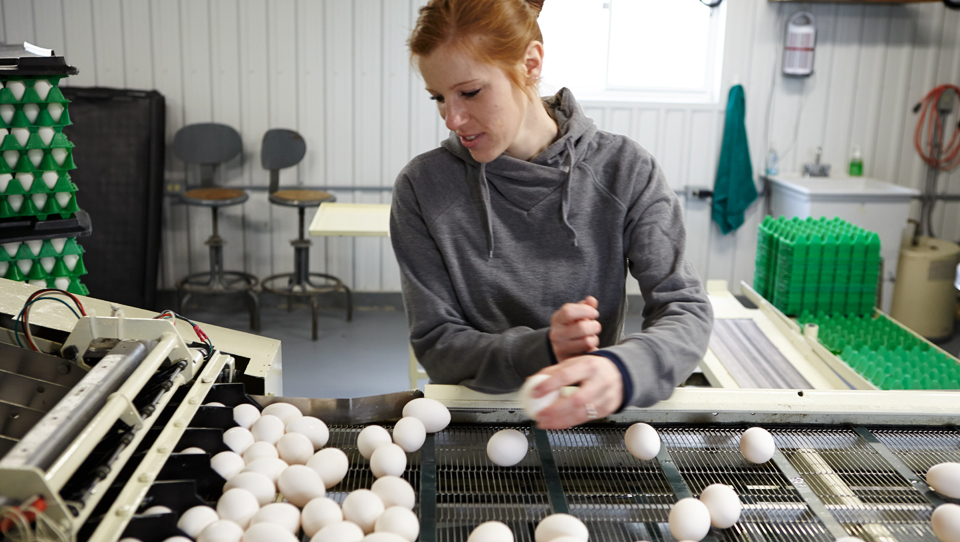
Our National Sustainable Management System
Perishable staple food products with long planning cycles (12 to 24 months) but relatively short shelf lives, including eggs, are inherently unstable markets if they are not managed. Stability of supply and prices in these markets is essential public policy for consumers, governments and farmers worldwide.
About 95 per cent of global egg production is consumed in the same country where they are produced. In fact, nearly all developed countries use specialized systems to manage and stabilize these markets, often with a complex web of subsidies, government buy-back programs and price supports.
Canada chose a subsidy-free approach through an innovative approach called “supply management.” In the 1960s and 70s, Canada’s egg industry was plagued by chronic overproduction and unstable prices. The government introduced supply management as an efficient way of stabilizing the egg market for consumers, while providing farmers with fair returns. Egg farmers operate their businesses in a fair farm pricing system, where farmers produce enough eggs to meet consumer demand. A national egg production target is first set and farmers in every province work together to meet this target. Farmers guarantee a stable supply of eggs to feed Canadians in exchange for a fair price for their product that covers their cost of production.
Because production is matched closely with demand, overproduction and waste are avoided. Farmers can earn fair, stable incomes directly from the market, not from government subsidies. And consumers can be assured of having a steady volume of high-quality eggs on grocery store shelves.